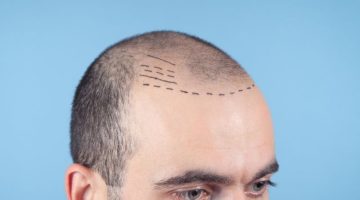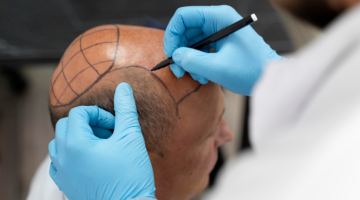Hair transplantation is a popular solution for those experiencing hair loss, offering natural and long-lasting results. However, this procedure is not suitable for everyone. Certain medical conditions, lifestyle factors, and hair loss patterns may limit a person’s eligibility for the treatment. Understanding these limitations is essential to ensure the safety and effectiveness of the procedure. In this blog, we will explore who may not be a candidate for hair transplantation and the reasons behind these restrictions. For more details on procedures, visit our Hair Transplantation Services page.
General Health Conditions for Hair Transplantation: Which Conditions Are Not Suitable?
While hair transplantation is generally a safe and effective procedure, certain health conditions can make it unsuitable for some individuals. Those with chronic illnesses such as uncontrolled diabetes, heart disease, or autoimmune disorders may face increased risks during and after surgery.
Additionally, individuals with poor blood circulation or clotting disorders are more likely to experience complications such as excessive bleeding or poor healing. It is also important for candidates to be free from active infections or conditions like Scalp Psoriasis or dermatitis, which can interfere with the healing process. A thorough Medical Consultation by a specialist is crucial to determine whether a person’s general health allows for a safe and successful hair transplant.
Age Factor: What is the Best Age Range for Hair Transplantation?
Age plays an important role in determining whether someone is a suitable candidate for hair transplantation. The ideal age range for hair transplant surgery is typically between 25 and 45 years old. At this stage, hair loss is usually well-established, and the pattern of hair loss has stabilized, which allows for a more predictable outcome.
In younger patients, especially those under 25, hair loss may still be progressing, which can complicate the long-term results. On the other hand, older patients, especially those over 60, may have slower healing processes. For personalized guidance, a comprehensive Hair Loss Consultation with a specialist can help determine the right timing for the procedure and assess individual circumstances.
Hormonal and Genetic Factors: Obstacles for Hair Transplantation
Hormonal imbalances and genetic factors are two significant obstacles that can impact the success of hair transplantation. Genetics, particularly Male Pattern Baldness and Female Pattern Hair Loss, play a crucial role in determining the pattern and extent of hair loss.
Hormonal changes, especially those related to thyroid imbalances or conditions like polycystic ovary syndrome (PCOS), can also cause hair thinning and shedding. For patients with hormonal issues, Hormonal Treatment Options can be explored to address underlying conditions before proceeding with a transplant.
Psychological Conditions: Factors to Evaluate Before Hair Transplantation
Psychological factors play a crucial role in the success of a hair transplant. Individuals experiencing anxiety, depression, or body dysmorphia may have unrealistic expectations regarding the results of the procedure. These conditions can influence how a person perceives their appearance and the potential outcome of the surgery.
It is essential to assess one’s mental well-being before undergoing a hair transplant. Candidates should seek guidance through a Personalized Consultation, where specialists can ensure realistic expectations and address any psychological concerns. Clear communication and professional support will contribute to overall satisfaction and a smoother recovery process.












Leave a Reply